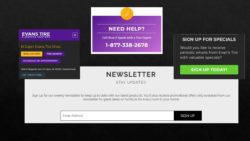
Published by Mancuso Media
If you have used Google to research how to lower your cost-per-action (CPA) or increase your conversion rate, without a doubt you’ve seen this in the headline of some ads:
Increase your conversion rate by 400%
Is it true? Is it possible? How do they do it? These are the questions that might have popped into your head.
This blog post is going to discuss some of the factors that you need to take into account when deciding if using a Landing Page Generator is the right choice for your business.
Objectively, we suggest that you find other reviews, blog posts, and pros and cons of using landing pages to generate phone calls and form fills.
What is a Landing Page?
A specific and designated webpage, designed to drive sales or capture leads. Landing pages usually do not have a navigation bar or links that will take you to other webpages. These pages are highly specific and usually used to drive a conversion action about a singular product or service.
What is a Landing Page Generator?
A platform that usually offers customizable templates designed to A/B test and optimize towards a single conversion action, to effectively improve conversion rates.
Let’s take a high level approach to why you would use one.
- The main reason is that you feel like your website isn’t converting visitors
- You want to test new formats, creative, and promotions to drive conversions
- You don’t have access to a web developer who can integrate high converting pages directly on your website
Pros
- Ease of use: Most platforms will have templates for you to take and make your own
- A/B Testing: Create variations until you have found a high converting option
- Simple Reporting: Easily report on conversions and leads
Cons
- Landing pages are not as flexible as your custom designed & developed website
- Lower overall website traffic, which leads to overall lower engagement
- Ongoing monthly/yearly costs which can add up to the thousands depending on how many landing pages your campaign requires
- Overly complex & detailed pages will lead to page abandonment
- A/B Testing dozens of landing pages will result in costly labor to update
When making your decision, the most important question you should be asking is:
Is this the best way for my customers to interact with my company’s website?

[Example of Call-to-Action elements on Mancuso Media client websites]
Can 3rd party landing pages quadruple your conversion rates? Absolutely.
If you have a single service and a poorly optimized website, your experience with landing pages could increase your conversion rate significantly. Taking your conversion rate from 1% or even 2.5% up to 4-10% is possible.
Landing pages are a great way to provide just enough information to collect a form fill. They can gently walk a potential customer down the path to conversion and do not allow them to leave the page and look at other services you may offer.
On the other hand, a conversion rate of 10% or higher most likely will not quadruple. If you have many services & locations, you’re going to be making A LOT of pages. Pages that have too many services and products will be harder to increase quality scores and increase the cost per click. Another variable to consider is if your business offers a variety of services that you might cross-sell to a customer, you might want potential customers to learn more about your offers to draw them into your location.
If you plan on A/B testing variations, the number of landing pages is going to double or triple. You can quickly and easily start spending in the thousands each year on many pages, and investing a significant amount of time into A/B testing. At a certain point in time, you may want to consider investing those costs into your website to maintain ownership and control.
Therefore, the final verdict on which is better, a 3rd-party landing page or a customized website, is…
IT DEPENDS!
The answer depends on your budget, how much time you have to invest, how quickly you need something live, and many other factors.
Landing pages are great for generating conversions on highly specific service pages. Your website might be a better option if your customers need to know that you offer more than just one service that they need.
Our suggestion is that you let the answer to this question guide your process:
Is this the best way for my customers to interact with my company’s website?
